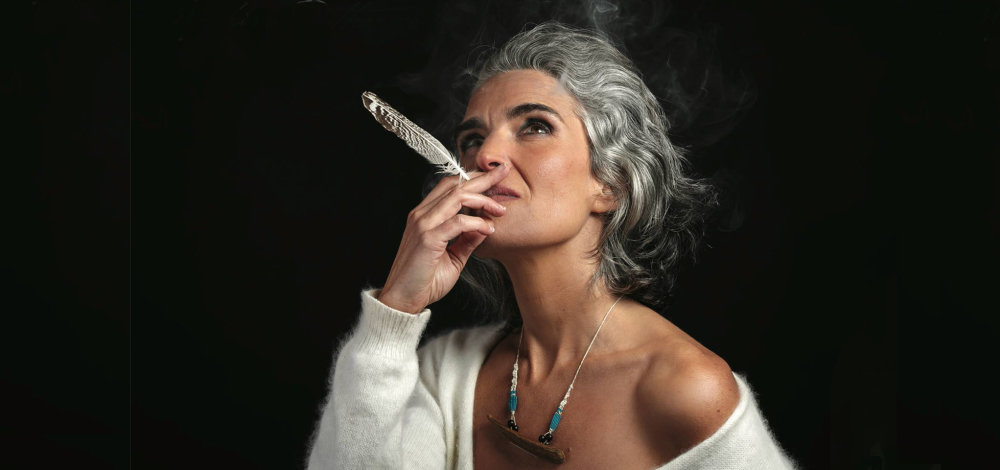Lula Pena

Lula Pena follows her own rules, not only in her career but in her very music. Her voice is haunting and moving, her guitar style unique, her approach deeply emotional yet also conceptual. She has a quasi-shamanic way of becoming one with her instrument when performing these long, rambling pieces, during which wood, string, words, human body, breath and voice all merge into a single, supernatural fabulous beast.
Lula Pena’s music is a living organism. It sails on a strange ocean, bordered by continents called folk blues, flamenco, French chanson, phado (that’s how she likes to spell it), bossa nova and others, grazing them all and leaving none intact.
“This is a free-floating open repertoire, a living body which behaves differently with each performance. For me, each performance is like a single piece, within which the various songs and fragments can connect in many different ways, according to the mood, the inspiration, the interaction between the audience and a temporary entity created by the conjunction of the voice and the guitar. The sequence on this album is just one linear possibility, and I encourage the listener to try different orders, just like I do in concert.
Archivo Pittoresco refers to several things, most importantly ‘the process’ of creating – it is based on the movement of the 19th century painters who decided to leave their ateliers and explore the woods and other organic landscapes, ruins, asymmetric views – I wanted to explore the same path in music, as I wander among different cultures and periods.
I like to play with destiny and destination. I’m more interested in finding out what things have in common, rather than what distinguishes them. I’m aiming at reaching the core which constitutes all kinds of different music – the brain stem which belongs to all music. There is a hidden truth that I want to find. The simplicity of voice and strings and a resonant body will help me find out, at least for myself. I hope that this subtle experience will stimulate the perception of others, of the audience.”
Lula Pena